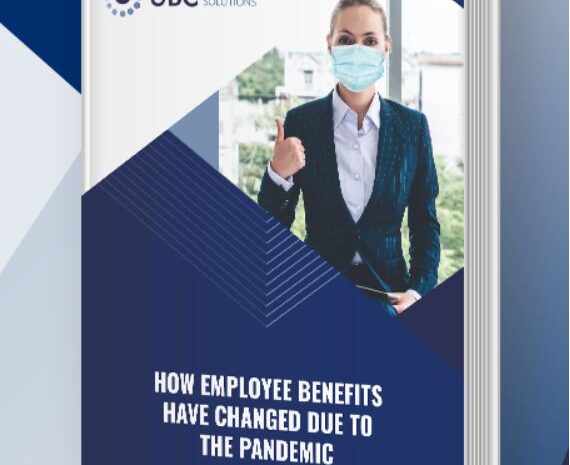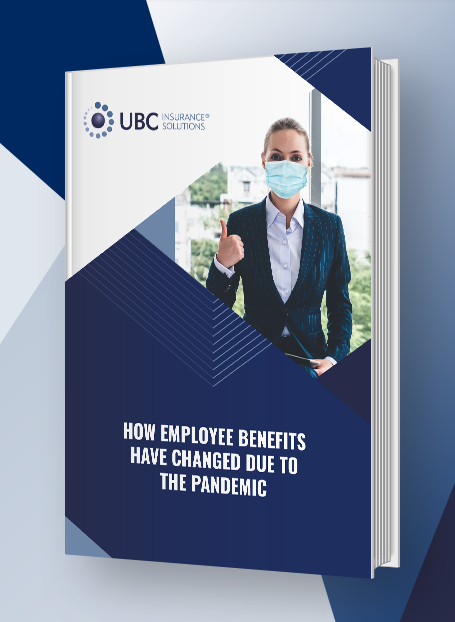
How employee benefits have changed due to the pandemic
As we near the tail end of 2020, people are starting to wonder about employee benefits after the pandemic. While we once thought the effects of the coronavirus pandemic would be temporary, the concept of returning to life as normal still feels far away.
Healthcare insurance costs may rise next year, which puts employers in the complicated position of determining what’s affordable – especially if they’ve suffered pandemic-related revenue losses. Plus, with the rise of remote work, many office perks are no longer tenable.
Employee benefits are a major deciding factor for many people seeking work, so attracting talent on the job market means providing the benefits packages employees want.
Below, we’ll go over how things may change post-pandemic – and what you can do to keep your employees happy while keeping your business afloat.
Health Benefits
The COVID-19 pandemic has made healthcare a huge priority. In fact, according to a recent survey by MetLife, 86% of respondents called healthcare benefits a “must have.”
However, premiums are predicted to rise and the types of healthcare benefits employees want are changing.
Cost of Healthcare
Due to COVID-19, many employers sponsoring healthcare coverage are now facing a delicate situation. Revenue losses may mean you have to save money, which could mean changing the type of healthcare coverage you offer employees.
If you’re in a position where you need to cut back on employee benefits, first and foremost make sure you’re transparent with your employers. Be upfront about why these changes are happening and be open about what new plans will look like in 2021.
While you may have to scale back to skinnier healthcare plans, you can find ways to mitigate the negative effects. Look into voluntary benefits programs. With these plans, employees can pay group rates if they opt in for coverage. This way, if you scale back to a cheaper plan, your employees still have the option of keeping certain benefits.
At UBC Insurance Solutions, we offer consultations to help you choose employee benefits packages to meet your office’s needs. If you’re considering switching your health insurance options, feel free to get in touch with us for guidance.
Expanding Your Employee Benefits after Pandemic
Not all changes to employee benefits have to be scaling back after or during pandemic, however. If your company is still doing well financially, consider expanding the type of healthcare coverage you offer. The results of the pandemic have affected almost every aspect of daily life. As a result, healthcare needs have changed.
Enhance Virtual Or Telehealth Programs
With hospitals and doctors offices high risk spaces for contracting corona, many people are opting for virtual appointments when possible. If your current insurance plan does not cover virtual or telehealth services, consider switching to a plan that does or offering some form of voluntary insurance that covers online appointments.
Mental Health Coverage
The pandemic has caused widespread stress across the world, and many people are facing resulting mental health issues. More and more employers are realizing that quality mental health coverage is vital to their employees’ well-being. Going into 2021, mental health coverage is a benefit many job hunters will consider a must, so think about expanding yours.
Childcare Help
With experts now predicting social distancing protocol may be necessary until 2021 – and possibly beyond – childcare help is even more important. Childcare benefits are relatively rare, a recent Care.com survey indicating 85% of companies do not offer them. In a new world, childcare coverage may be vital.
While employees may be working from home more, that doesn’t necessarily mean they won’t need some form of childcare. Watching young children while working can feel like working two full-time jobs. Supplemental childcare – like a nanny, babysitter, or daycare provider – would make a huge difference.
Whether it’s a cash subsidy or paid platforms for childcare services, childcare benefits are going to be important post-pandemic.
Flexible Work Schedules
Flexible schedules are beneficial for several reasons.
First, the rise in remote working means the work/life balance is disappearing. Remote work will continue to be optimal for your employee’s health and safety, but other responsibilities often clash with work duties. Many employees would prefer flexible start and end times to compensate.
Second, given shelter-in-place orders have lasted months, many people are putting off vacations and have accrued unused vacation days. Consider transferring unused PTO to the following calendar year or letting employees use portions of their unused PTO for loan repayment.
Other Office Perks
It’s unclear when we can return to work in a traditional sense. This means many employees are missing out on office perks that once kept morale high, increased company loyalty, and fostered a sense of community.
With office lunches and happy hours on hold, it’s time to brainstorm ways to reward remote workers.
Some companies are providing gift cards from food delivery services like GrubHub or Uber Eats. Companies like AirBnB and some wineries are doing virtual events like wine tastings and happy hours. If you want to keep your company culture intact and make employees feel valued, these are all viable options.
Conclusion
December 31, 2020 is inching closer and closer. The changes we saw at the beginning of the year are still in place in many parts of the country and world. Employee benefits after the pandemic need to be updated. It’s time to stop thinking of the post-pandemic world as a return to normal; it’s a new normal entirely.
If you’re looking to change employee benefits, UBS Insurance Solutions can help. We’re happy to talk over your options and help you identify a group plan to meet your company’s unique needs. Reach out here to schedule a consultation.




